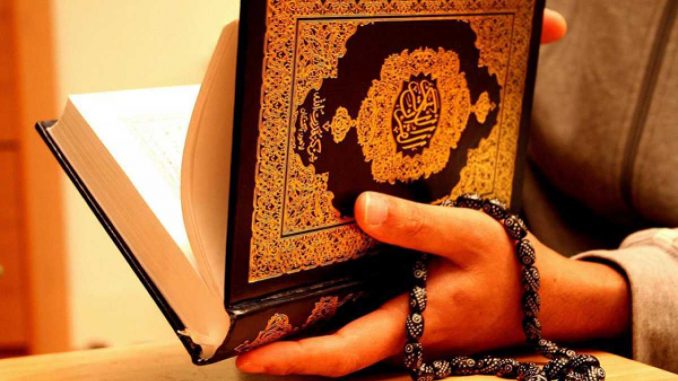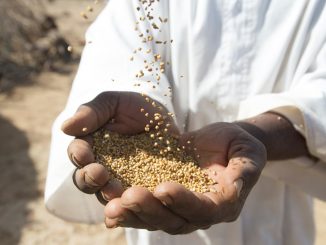
2. Your bond with Qur’an
The second most important thing to do is to arrange for recitation and hearing of
#Qur’an, knowing its meaning and message and developing deeper understanding
of it.
The specific acts of worship during the month of #Ramadhan, i.e. fasting and
#prayers at night,
are based and connected with #Qur’an in one form or another.
To listen to the #Qur’an, to go through it again and again, to try to understand it, and
to develop a yearning to act upon it, are the very purpose of the month of
#Ramadhan.
Therefore, most of your time should be spent in the company of
#Qur’an. You should spend the time pondering, on the one hand, what Allah says to
you, and, on the other, your heart and mind should absorb what Qur’an teaches
you. You will, then, automatically be moved to act upon it – you will feel yourself
inclined to adhere to #Qur’an.
The least that we get from #Tarawih (night #prayers during #Ramadhan) is that we go
through the entire #Qur’an in one month’s time. The spiritual benefit of hearing the
#Qur’an while standing before Allah is immense, yet, due to lack of understanding in
#Arabic language, many people fall short of achieving the maximum benefit from
this unique scheme of worship – the joy and blessings of knowing, and revising, the
message and themes of #Qur’an.
This demands that you should pay some extra effort for this purpose. You should
devote some time, i.e. additional to which you do for Tarawih, for reading a few
#passages of Qur’an with the meaning in your own language.
How much in a day, then? One measure is provided by Tarawih itself, i.e. as much
as is necessary to finish one reading of the entire Qur’an in one month. Hadith
literature provides invaluable insight into this matter too. We come to know that
angel Gabriel used to come to the# Prophet #Muhammad (pbuh) to repeat the entire
Qur’an from its beginning to the end during the course of the month.24 The best
plan, therefore, is to study as much part of Qur’an with its meaning in the day time
as is going to be read out in prayers during the night (about one juz, i.e. onethirtieth
of the Qur’an). But this would be difficult for all to do.
Qur’an has itself given concession to the weak in this regard – whether their
weakness is because of their being sick, or being busy and hard bound to make a
living, or being already engaged in struggle in the cause of Allah – by allowing to
“recite as much of it as you easily can.”25 So the second best plan, therefore, would
be to start studying Qur’an with translation with commitment to continue and
finish by the advent of next Ramadhan. This would require just going through the
text of just one or two rukoo (about one page, as a rukoo consists of 10-12 lines or
6-10 Qur’anic verses). Taking this much time out is not difficult, either in
Ramadhan or other than it.
If you find even this difficult for you, go through just three verses daily. If not in
one year, you would be able to go through the Qur’an with quite good
understanding in 5-6 years. Starting this project in Ramadhan would inject
additional goodness and blessings into it.
In addition to understanding the Qur’an, it is essential to absorb it in your heart
and mind and strengthen the bond of your heart and soul with it. The attributes
and characteristics, as enunciated by Qur’an itself, of those who listen to and
ponder over the meanings of Qur’an are not limited to mere intellectual
understanding. Even many non-Muslims develop such understanding, but in spite
of their appreciation of its message they do not accept it. So, its study involves
heart and mind, body and soul – your whole being. #Qur’an itself tells that “when
Allah’s name is mentioned, their hearts quake, and when His verses are recited to
them their faith grows.”26 The Prophet has even advised us to weep while studying
Qur’an, and if we cannot then we should mimic weeping.
Study you should, though it may be of a small portion of Qur’an. Study surah alQariah,
which forewarns about the Calamity, or study #surah al-Zilzal, which tells
that you would face the consequences of even the smallest of your good or evil
deeds – but you should be engrossed in it and have a feeling that you are standing
before #Allah Almighty, that He is talking to you, telling you what you should and
what you should not do, informing you about what is going to happen and what
you can gain. In brief, your heart and mind, body and soul should all participate in
the study of #Qur’an.
24 Al-Bukhari and Al-Muslim, narrated by the Prophet’s Companion Abdullah ibn Abbas
25 Al-Qur’an 73:20
26 Al-Qur’an 8-2



